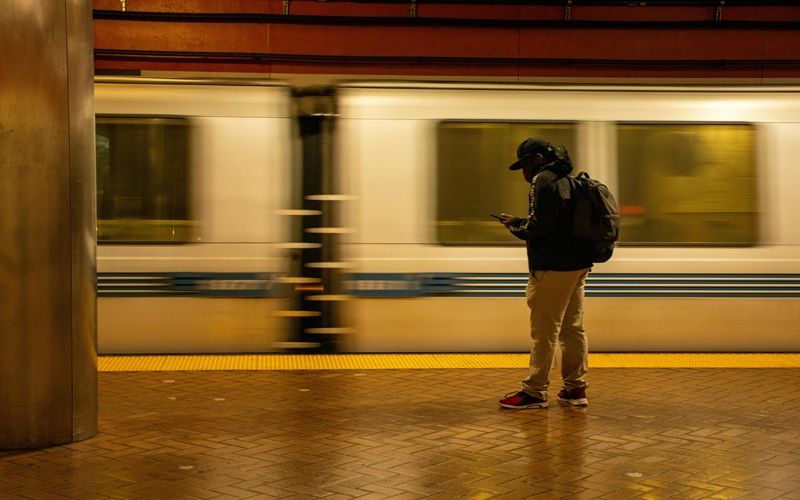Double-Tick
They used to speak every day. Not always in words — sometimes in shared links, half-laughed memes, or silent phone calls that said more than conversations ever could. Then, life got louder. Work stretched longer, replies grew shorter, and eventually, even the silences stopped feeling shared.
No one ever said, “This is ending.” No one needed to.
Both of them kept thinking about the other. In quiet pockets of the day — while brushing teeth, while unlocking their phone, while passing a café they once sat in. A part of them always lingered at the edge of reaching out. Fingers poised over the screen. Words forming, dissolving, forming again.
“Hey, I’ve been meaning to check in.”
“This song reminded me of you.”
“Are you okay?”
None of it was ever sent.
Each assumed the other had moved on. Or didn’t care enough. Or had already written a quiet closure in their own mind. Each was waiting — for the other to say something first. And so the silence grew roots. It wasn’t anger that ended them. It wasn’t betrayal. Just fear, wrapped in pride.
Time passed. They saw fragments of each other’s lives through distant windows — photos with new people, locations once shared now tagged alone. The ache wasn’t jealousy. It was something gentler, and stranger: a mourning of presence without a death. A closeness that still lived in memory but had no shape in the present.
One of them finally typed a message, late one night, after too many almosts.
“I miss how simple things used to be with us.”
They stared at the blinking cursor. The message was never sent.
Not because they didn’t mean it.
But because they didn’t know if the other still did.
And somewhere, not far, the other scrolled past a memory — a photo, a caption, a moment frozen in digital time — and whispered, “I wish I’d said something.”
But by then, neither knew how to begin again.
And both were still too proud to care first.
The Line
We live in a time where reaching out has become both easier and harder than ever. Messages can be sent in seconds, and yet, we wait. We sit with our fingers hovering over screens, scrolling through timelines, replaying conversations, reading last-seen timestamps like emotional tea leaves — and still, we wait.
What are we waiting for?
The answer, though complex, often boils down to one quiet truth: we’ve become too proud to care first.
The Invisible Stand-Off
Modern relationships — whether romantic, platonic, or familial — increasingly feel like emotional chess games. Each move is calculated. Each silence is interpreted. And often, neither side wants to make the first move. Not because we don’t care. But because we’re afraid that the other person doesn’t.
So we hold back.
We don’t send the message we keep drafting and deleting. We don’t comment, we don’t check in, we don’t ask how they’ve been. We choose restraint over risk. Because in a world where caring first feels like vulnerability, silence feels safer.
The irony? Both people often feel the same way. Two hearts beating behind guarded walls, both quietly aching, both waiting for the other to blink first.
Pride as a Shield
Pride is a strange companion. It walks beside us dressed as dignity, but more often than not, it whispers fear. Fear of looking desperate. Fear of seeming too invested. Fear that our care will go unanswered.
So we withhold love to protect ego. We guard our concern like it’s a secret. We act unfazed, even when something inside us yearns for connection. We confuse silence with strength.
But pride is not strength. At least, not the kind that nourishes. Pride might keep our image intact, but it does nothing for our relationships. Nothing for our inner peace. It wins battles while we lose people.
Digital Closeness, Emotional Distance
Technology has given us unprecedented access to each other, but it has also deepened the space between us. We see updates, but not feelings. We know birthdays, but not breakdowns. We’re “connected” but not close.
The illusion of proximity numbs the instinct to reach out. Because we saw them post a story, we assume they’re okay. Because they liked our photo, we pretend that counts as interaction. And because no one has said anything directly, we assume no one feels anything deeply.
But the truth is: people are aching behind their well-lit selfies. They’re hurting behind their memes and status updates. Everyone is longing — silently — for someone to ask, “Are you really okay?”
When Everyone is Waiting
We’ve normalized a culture where emotional initiative feels like overstepping. Where care is a currency, we spend cautiously. Where silence is not just a lack of words, but a form of self-preservation.
And so, everyone waits.
They wait for the other person to call. To say sorry. To break the ice. To admit they miss the friendship. To say they still care.
But in that waiting, days turn to months. Bonds weaken. Affection fades, not because it wasn’t real, but because it wasn’t acted on. The connection was alive — but neglected.
We often think disconnection is the result of conflict. More often, it’s the result of nothing. Nothing said. Nothing done. Just two people sitting in separate corners of their lives, both too proud to care first.
The Emotional Cost of Withholding
There is a hidden toll we pay for our silence. We feel it in the heaviness of unresolved emotions. In the regret of unspoken apologies. In the grief for friendships that faded without farewell.
What we rarely admit is how much we miss the people we don’t talk to anymore. How often we check their profiles. How many texts we never sent. How many times we wish things had ended differently — or never ended at all.
And that’s the cost of pride. Not loud. Not dramatic. Just a quiet, persistent ache. A feeling that something meaningful was left half-formed. That the story could have gone on, if only someone had cared enough to reach out.
Caring is Not Weakness
We need to unlearn the belief that emotional initiative is a weakness. That sending the first message makes us smaller. That vulnerability makes us lose power.
Caring is not weak. It is courageous.
In a world that conditions us to be emotionally economical, caring freely is a kind of rebellion. It says: I am not afraid to feel. I am not ashamed to show it. I value this connection more than I value being “right” or “cool” or “indifferent.”
And maybe, just maybe, the other person is waiting for exactly that kind of courage.
What If We Went First?
Imagine if we stopped waiting.
If we messaged that friend who’s been distant. If we called the sibling we haven’t spoken to in months. If we sent the meme with a “this reminded me of you.” If we said the thing we’ve been too afraid to say.
Maybe we’d be met with warmth. Maybe we wouldn’t. But either way, we’d know we acted from the heart. And that is a kind of peace that pride will never offer.
The world doesn’t need more cool detachment. It needs more gentle honesty. More people who aren’t afraid to be the one who goes first.
Because the truth is, someone has to.
Care
Being the first to care isn’t about chasing people who don’t value you. It’s about not letting ego get in the way of genuine connection. It’s about refusing to play a game where no one wins and everyone feels alone.
If you feel something, say something. If you miss someone, reach out. If you love someone, let them know.
Life is already filled with enough silence.
Let’s not add to it by being too proud to care first.


